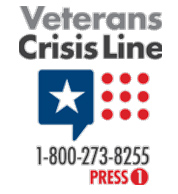Office of Research & Development |
 |
Office of Research & Development |
 |

Brain tissue donations from relatively healthy Veterans are essential to research. Scientists must compare tissues of those who are affected by neurological diseases and those are who are not (otherwise known as "control tissue"). We hope that those without brain disorders consider donation to support research on neurological conditions affecting Veterans. For more information about the importance of donating, please call us to speak with a researcher at (866) 460-1158.
The VA Biorepository Brain Bank (VABBB) is a human tissue bank that collects, processes, stores, and gives out research specimens for future scientific studies. The VABBB currently provides central nervous system (CNS) tissue and health information to scientists studying disorders such as amyotrophic lateral sclerosis (ALS; Lou Gehrig's disease), disorders of Veterans of the 1990-91 Gulf War, and posttraumatic stress disorder (PTSD). The VABBB is currently enrolling persons with these and other neurological conditions, in addition to those who do not suffer from brain disorders.
It is never too soon to enroll in the VABBB. The health information that you provide now, while living will support research now, and upon your death make your tissue donation even more valuable to future research. However, pre-enrollment is not required. Consent can be given by your next-of-kin immediately following death. We encourage interested individuals to talk with their families and friends about their intentions to be a brain donor. Discussing these issues now may help to reduce stress on your family at the time of your death.
 To enroll in the VABBB, you will be asked to review and sign a consent form. In addition to your consent, we will also need the consent of your next-of-kin (e.g., spouse, child, sibling) because this person will need to confirm your decision to donate after your passing. After signing the consent, we will ask you to complete surveys via mail and telephone about your current health and past health history once a year. These surveys will ask for things like your name, birthdate, sex, education level, and race or ethnic group, as well as details of your military service (if you served). Some questions will ask whether you have been exposed to chemicals at home, work, or if you were in the military. You will be asked to complete a brief test of memory and concentration. All of your information that we collect will be de-identified and coded to ensure privacy. Information collected by the VABBB will be kept confidential as required by law. Study results may be published for scientific purposes, but your records and identity will not be revealed. The VABBB complies with the requirements of the Health Insurance Portability and Accountability Act (HIPAA) of 1996 and its privacy regulations and all other applicable laws that protect your privacy.
To enroll in the VABBB, you will be asked to review and sign a consent form. In addition to your consent, we will also need the consent of your next-of-kin (e.g., spouse, child, sibling) because this person will need to confirm your decision to donate after your passing. After signing the consent, we will ask you to complete surveys via mail and telephone about your current health and past health history once a year. These surveys will ask for things like your name, birthdate, sex, education level, and race or ethnic group, as well as details of your military service (if you served). Some questions will ask whether you have been exposed to chemicals at home, work, or if you were in the military. You will be asked to complete a brief test of memory and concentration. All of your information that we collect will be de-identified and coded to ensure privacy. Information collected by the VABBB will be kept confidential as required by law. Study results may be published for scientific purposes, but your records and identity will not be revealed. The VABBB complies with the requirements of the Health Insurance Portability and Accountability Act (HIPAA) of 1996 and its privacy regulations and all other applicable laws that protect your privacy.
The body tissue that you donate will be collected at the time of your death and will not require any surgery or collection procedures at this time. Upon death, your family or someone they designate must call the on-call study researcher. After we receive permission from your next-of-kin to proceed, we will make all of the arrangements for the recovery of your donated organs. We are responsible for all costs related to your organ donation as well as transportation of your body to and from the site where the donation is recovered. However, we cannot assume the usual costs of the funeral, burial or cremation. If you have questions about VA death benefits please speak with your local benefits representative or visit the Veterans Benefits Administration web page for more information. The procedure will be done professionally and with dignity at the closest VA Medical Center or by medical professionals at another facility if the VA facility is unable to perform the procedure. An open casket viewing is possible after donation if that is your family's wish. If your next of kin requests it, a copy of the pathology report will be provided when it becomes available.
 Your donation may help future efforts in neurological research. However, your taking part in this study will not benefit you directly.
Your donation may help future efforts in neurological research. However, your taking part in this study will not benefit you directly.
Thank you for thinking about this important issue. We are always available to answer any questions you or your family may have, please find additional information provided in theFrequently Asked Questions section of our brochhure.
During work hours, we can be reached at 855-561-7827.

If you have thoughts of hurting yourself or others, please contact the Veterans Crisis Line at 1-800-273-8255 PRESS 1 or TEXT 83825